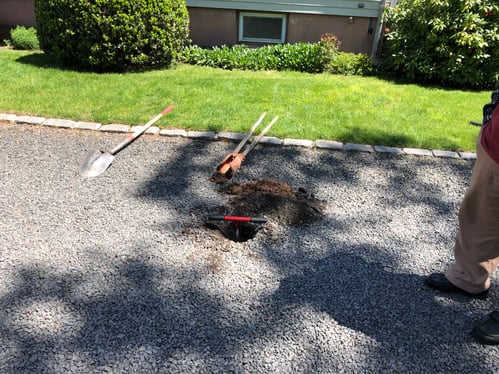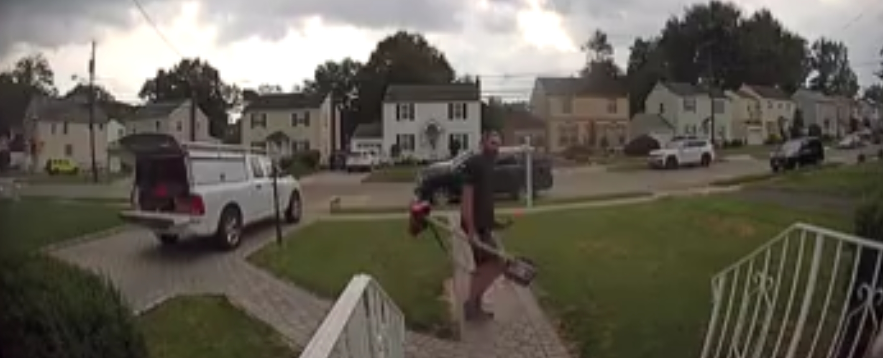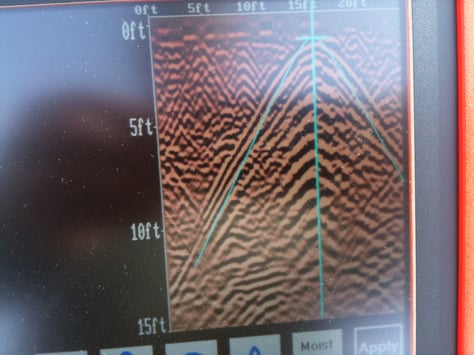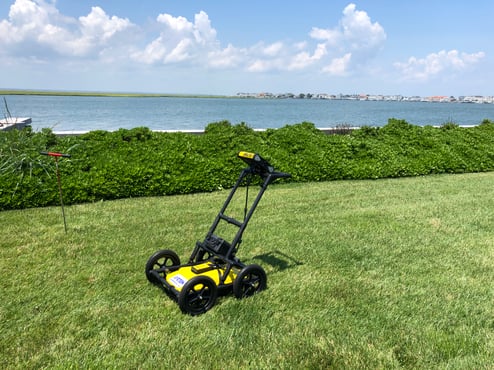What happens when a home inspection finds a possible underground oil tank?
A common request our office receives regarding a tank sweeps.
"Hello, I'm selling my home and we suspect that the buyer did a tank sweep with a metal detector vs GPR. They supposedly think they found a tank on the property. We do not see any evidence of a tank, nor was one disclosed by the previous owner (who bought the home in the 70s, house is 80 years old). Is it possible that this 'tank' is just a gutter drain pipe, part of our sprinkler system and/or rubble backfill such as a chunk of concrete sidewalk with rebar or metal containing soil? If so, would a GPR scan be conclusive? Thanks."This is a common situation we get from property owners who are told they have a buried oil tank. The owner has the question regarding if the meta detector is reliable. Here are some common talking points...
- The property owner is unclear how the suspect tank was found. Was it found with a Metal detector, or Ground Penetrating Radar or both? (both GPR and a metal detector would be best) The solution would be having the owner receive a copy of the Tank Sweep Report so they would have a baseline regarding what they found and where. Yes, every professional service should come with a report, no report, then question how professional the service was.
- The property is over 70 years old, so while the owner has no knowledge that there was an oil tank, they also have no documentation that there was not an oil tank. A 70 year old property most likely had oil heat at one point in time as oil was very popular in the past and other fuel sources such as natural gas was not commonly available or financially appealing until the 1970's.
- The tank scan found a buried object, presumably metal. If only a metal detector was utilized, you can't say 100% if the metal found is a tank as metal detectors detect metal and properties have all sort of buried metal. Metal can be in the soil naturally, you could have buried debris, buried metal pipes or surface metal (like a fence) that distracted the metal detector and have a false buried metallic signature reading. Happens all the time. A metal detector on a sandy beach is great it will find buried metal, likely a bottle cap, but people hope for coins or expensive jewelry. People paying a couple hundred dollars for someone to use an $800 metal detector to find a tank are also helpful.
 The photo below was where a metal detector thought there was a tank. There was no tank, just soils with a metallic signature.
The photo below was where a metal detector thought there was a tank. There was no tank, just soils with a metallic signature.
The guy in shorts, is using a $900.00 metal detector and found a suspect tank in the front yard.

When you scan for a tank, the more expensive the equipment the better. GPR (Ground Penetrating Radar) costs tens of thousands of dollars because it has the technology to do the job.

Effective Oil Tank Scan or Oil Tank Sweeps like on commercial sites would use GPR as it will provide a signal (image) of buried objects.

The signal above shows the underground oil tank.
Purchasers of commercial properties are more aware of the liability associated with leaking USTs (Hundreds of thousands of dollars) compared to a residential home buyers (Homeowners think a few thousand dollars is a lot.) So on the commercial side of real estate tank sweeps are completed with GPR, not metal detectors. Most environmental consultants that perform tanks weeps will use GPR and discount the cost for residential sites. Nobody wants to see someone buy a house and find a $50,0000 cleanup is required.
What if a buyer finds a suspect tank?
This is a really hard question because it relies so much on the quality of the tank sweep. If they used GPR, if the property is likely to have had an oil tank (older the home, the more likely) and if the buried anomaly has the signature of a tank. Well then you have to excavate and confirm that object is an oil tank.
Who pays for the oil tank removal?
Owner will pay 98% of the time as finding a hidden oil tank is a defect that needs to be addressed.
Do they have buried oil tanks at the beach (shore)?
If the home wanted heat, then yes homes along the coast and on islands had buried oil tanks. Oil was king up until the late 1970's in New Jersey. The photo below is of a home we scanned on a barrier island. Many older beach houses eventually converted to natural gas, as gas could also fuel the stove, dryer, hot water heater etc. After conversion to gas, it was not uncommon that the tank was just left in the ground. So short answer beach houses had oil tanks.

What if a suspect tank is found and we don't believe its a tank?
Short answer prove your opinion right and dig it up and verify its not a tank.
What is the best tank sweep?
Using Ground Penetrating Radar is the best technology for finding buried tanks at properties, period. Can you use a metal detector to verify a GPR signal that identified a tank? Sure, always verify the object is metal. GPR can't penetrate metal so when a GPR sweep pings a tank, it means the radar can't penetrate the object (likely a metal tank) but there are buried concrete tanks. Metal detectors can verify an object is metal, but a metal detector should not be used to be your sole technology

